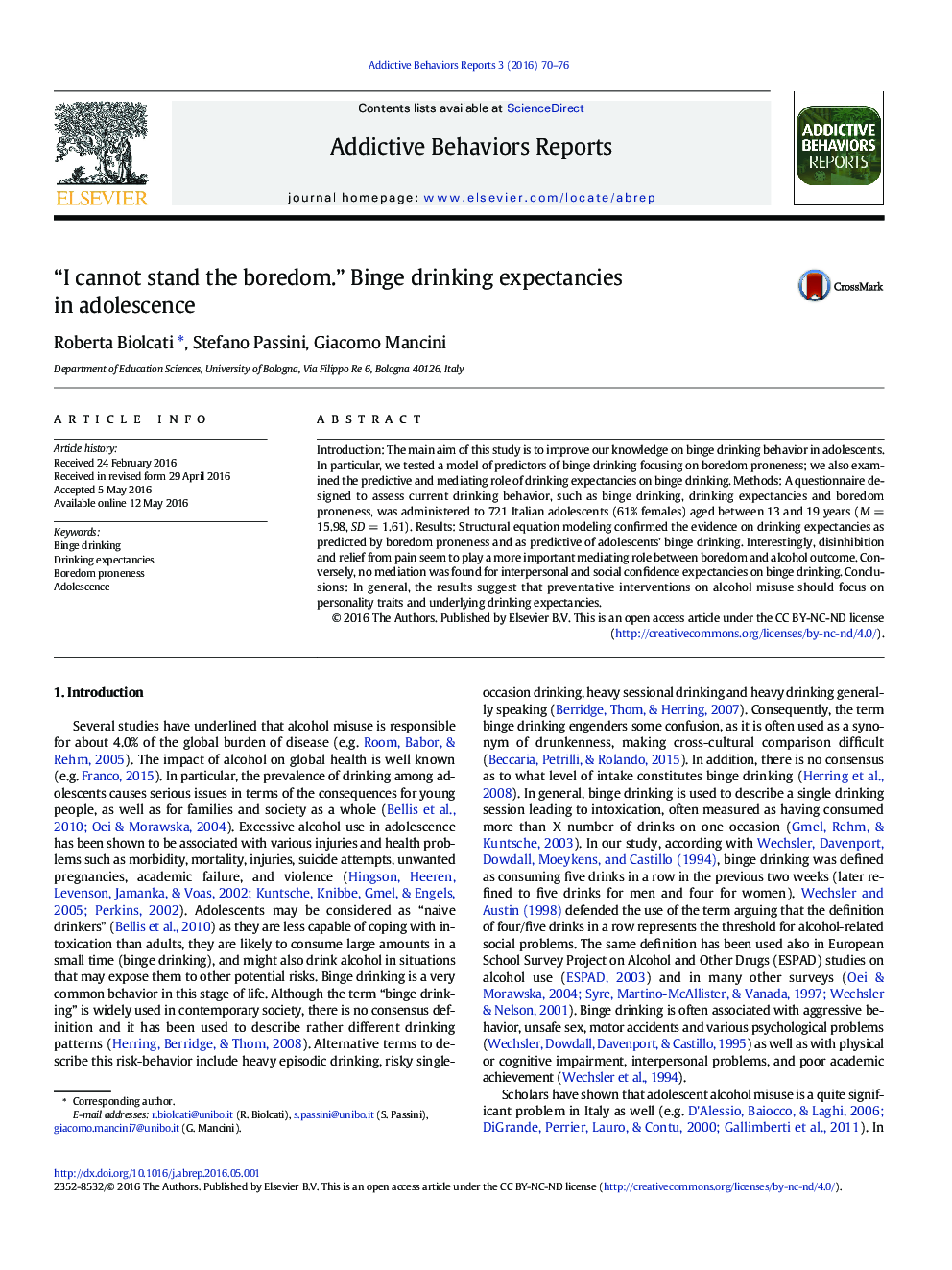| Article ID | Journal | Published Year | Pages | File Type |
|---|---|---|---|---|
| 900732 | Addictive Behaviors Reports | 2016 | 7 Pages |
•Binge drinking is a very common behavior in Italian adolescents.•Binge drinkers have high scores on boredom and expectancies to drink.•Boredom predicts binge drinking via the mediation of drinking expectancies.•Social confidence has no effect on binge drinking behaviors.•Interventions on boredom and positive alcohol expectancies may reduce drinking.
Introduction: The main aim of this study is to improve our knowledge on binge drinking behavior in adolescents. In particular, we tested a model of predictors of binge drinking focusing on boredom proneness; we also examined the predictive and mediating role of drinking expectancies on binge drinking. Methods: A questionnaire designed to assess current drinking behavior, such as binge drinking, drinking expectancies and boredom proneness, was administered to 721 Italian adolescents (61% females) aged between 13 and 19 years (M = 15.98, SD = 1.61). Results: Structural equation modeling confirmed the evidence on drinking expectancies as predicted by boredom proneness and as predictive of adolescents' binge drinking. Interestingly, disinhibition and relief from pain seem to play a more important mediating role between boredom and alcohol outcome. Conversely, no mediation was found for interpersonal and social confidence expectancies on binge drinking. Conclusions: In general, the results suggest that preventative interventions on alcohol misuse should focus on personality traits and underlying drinking expectancies.
